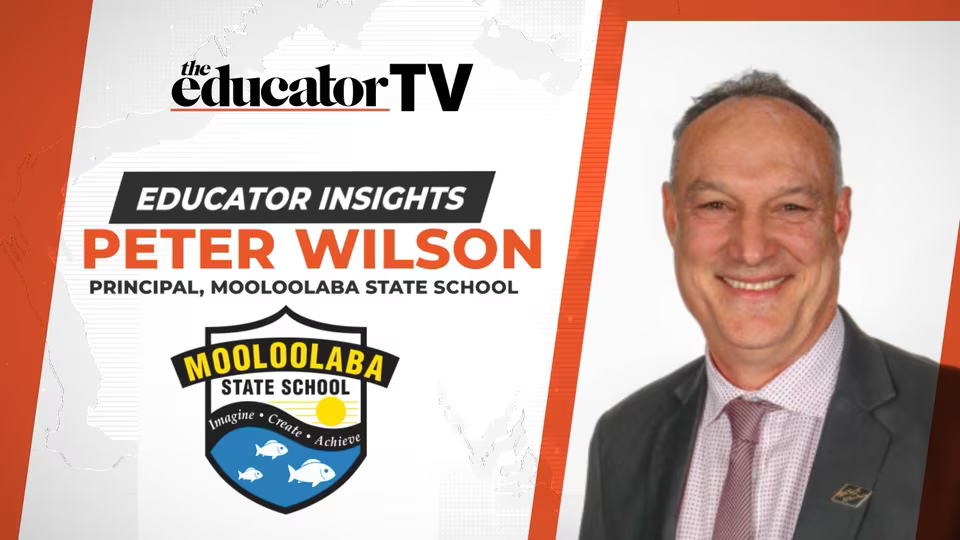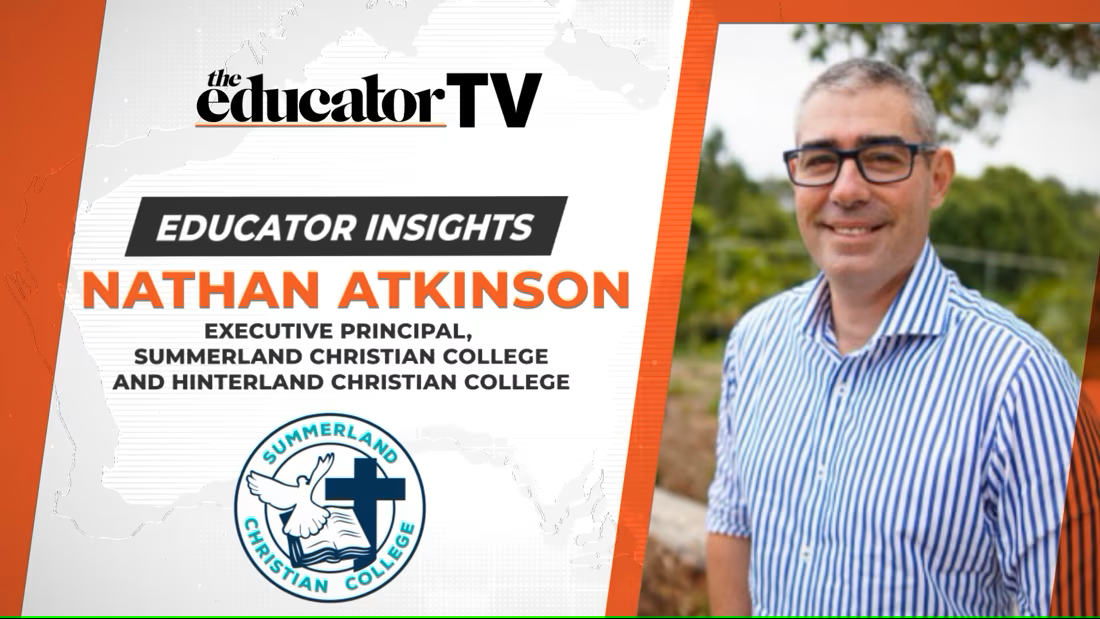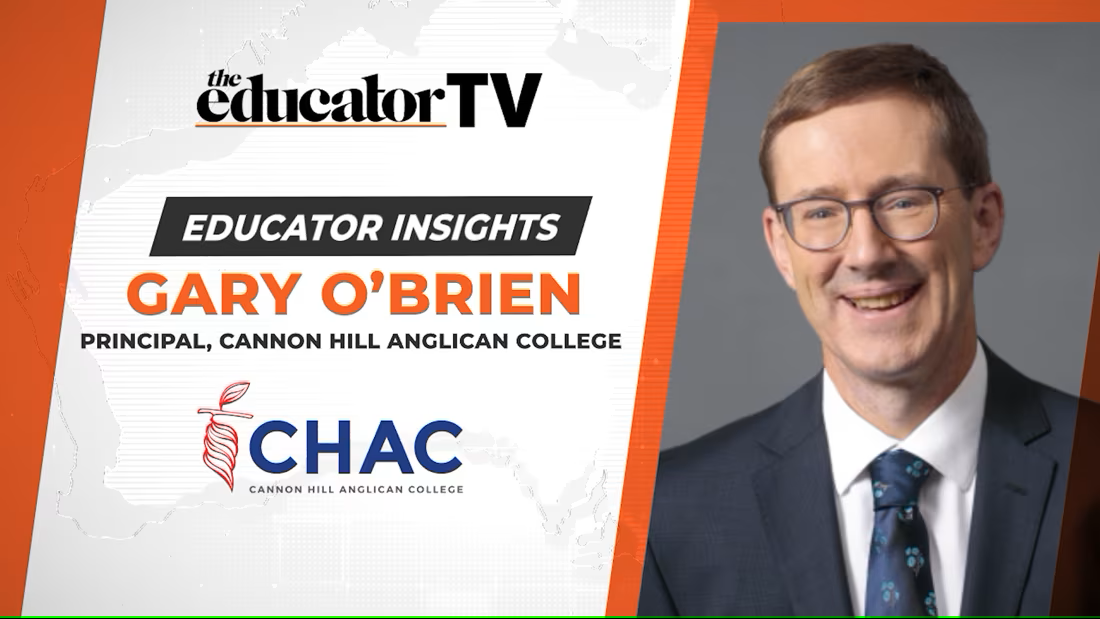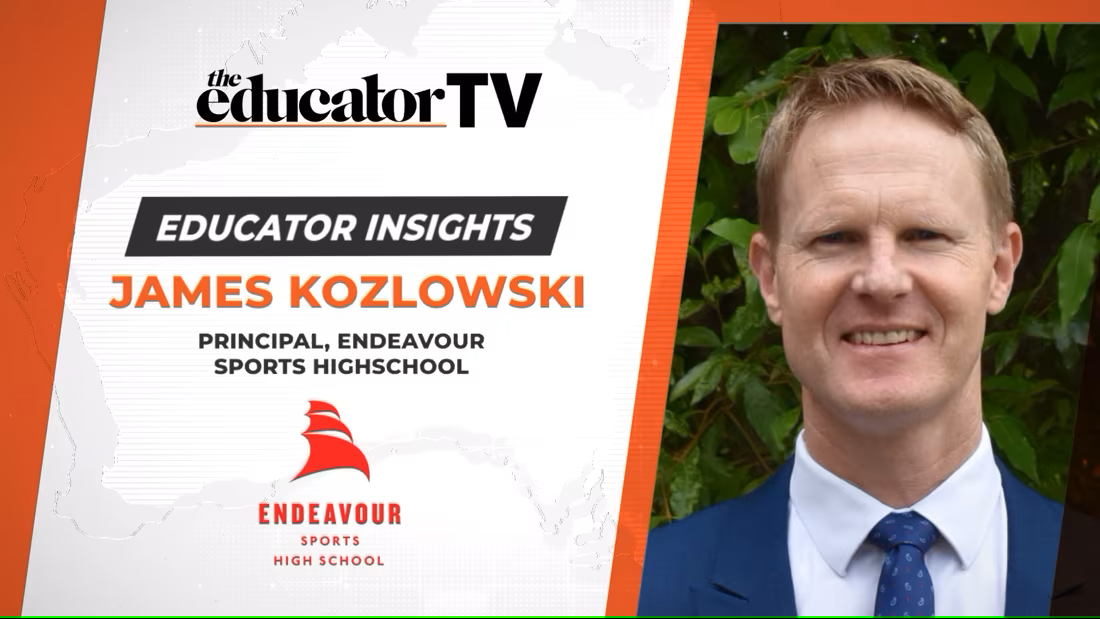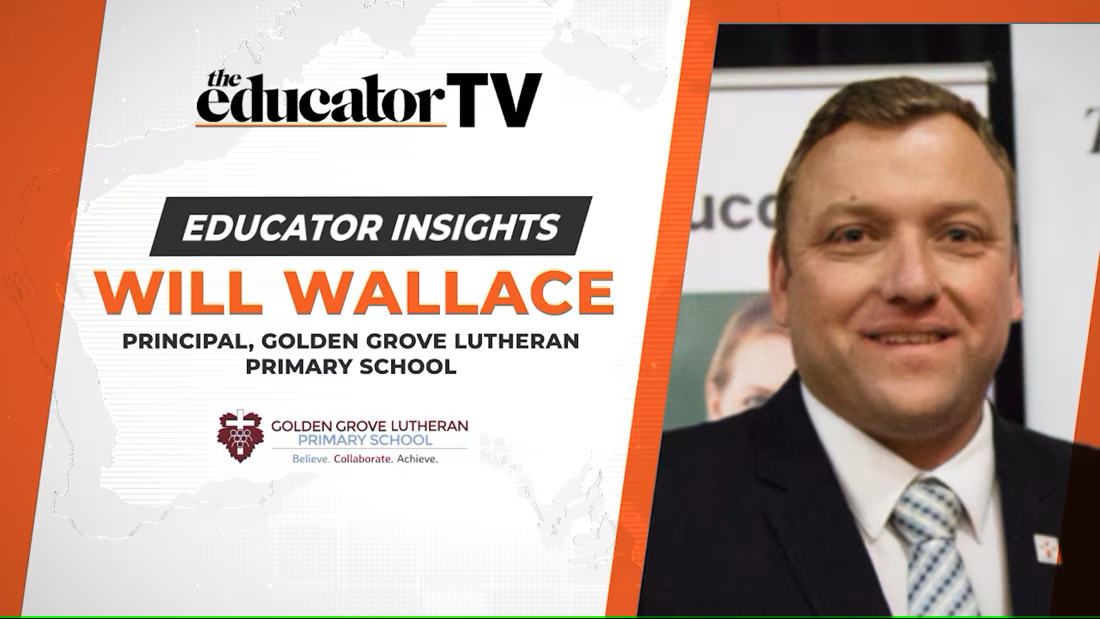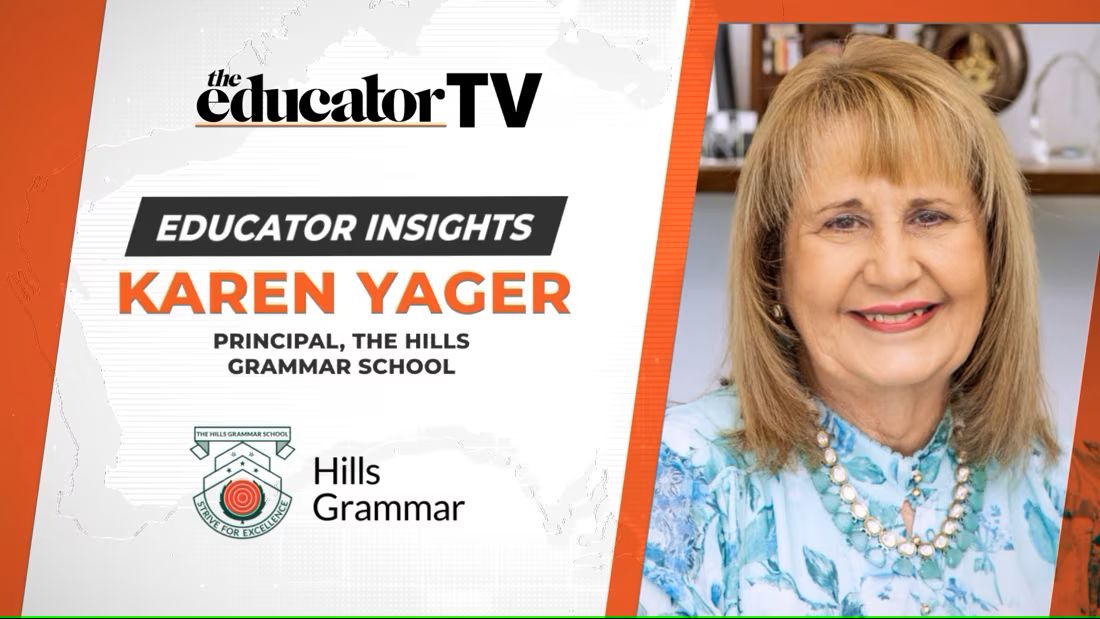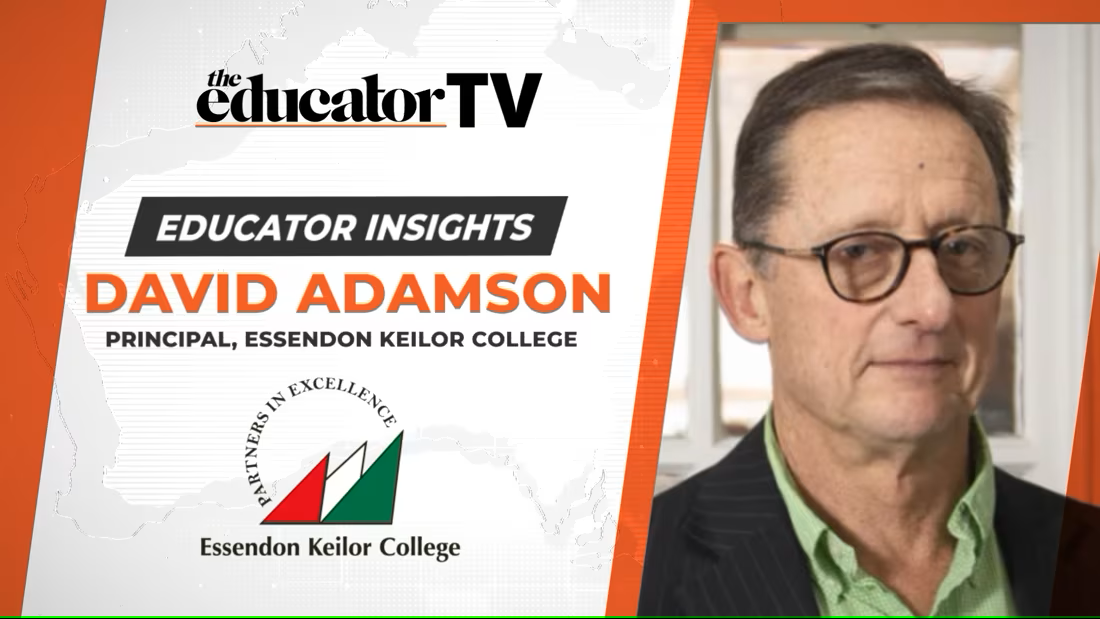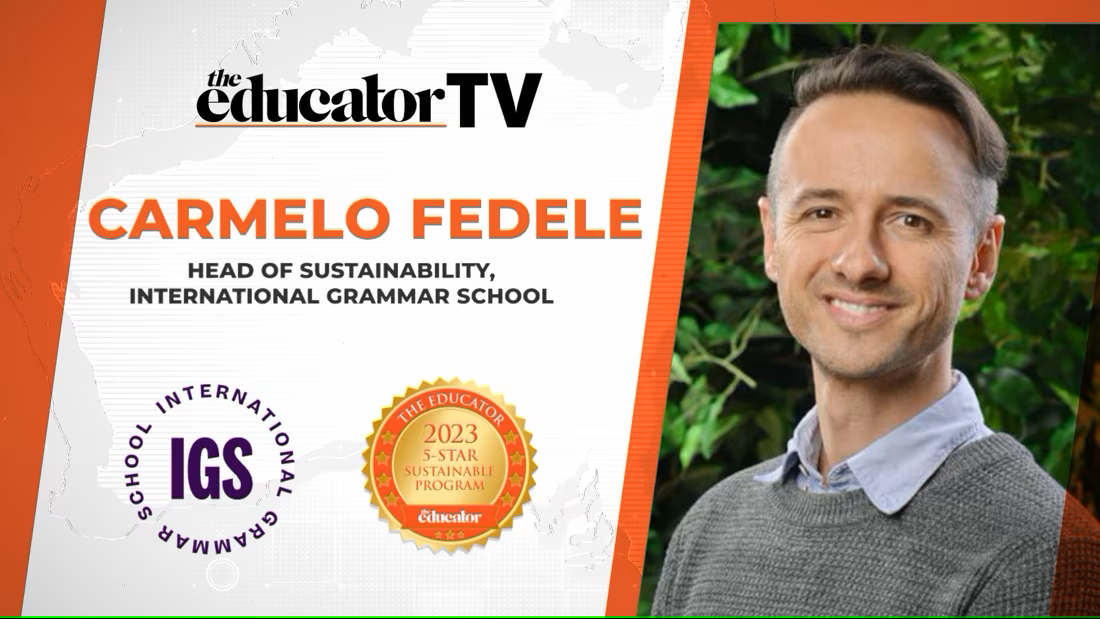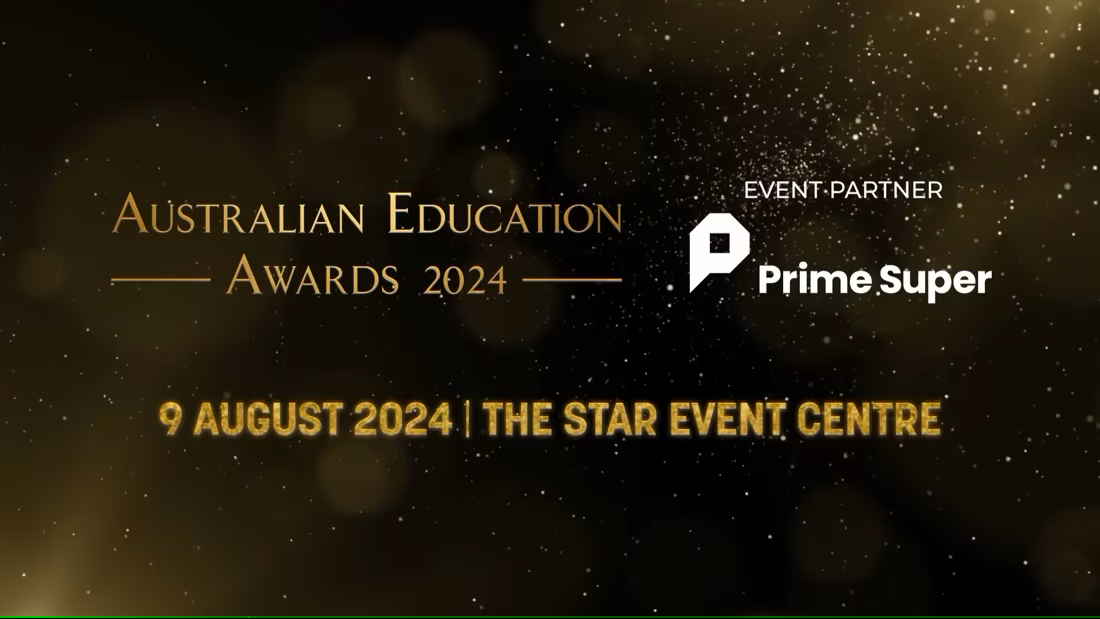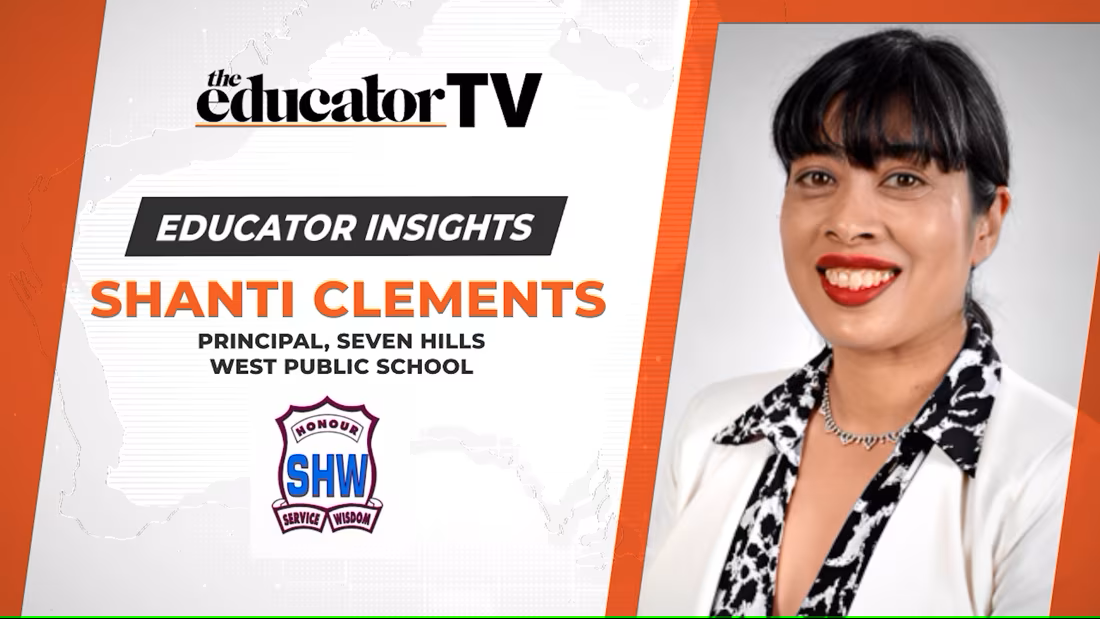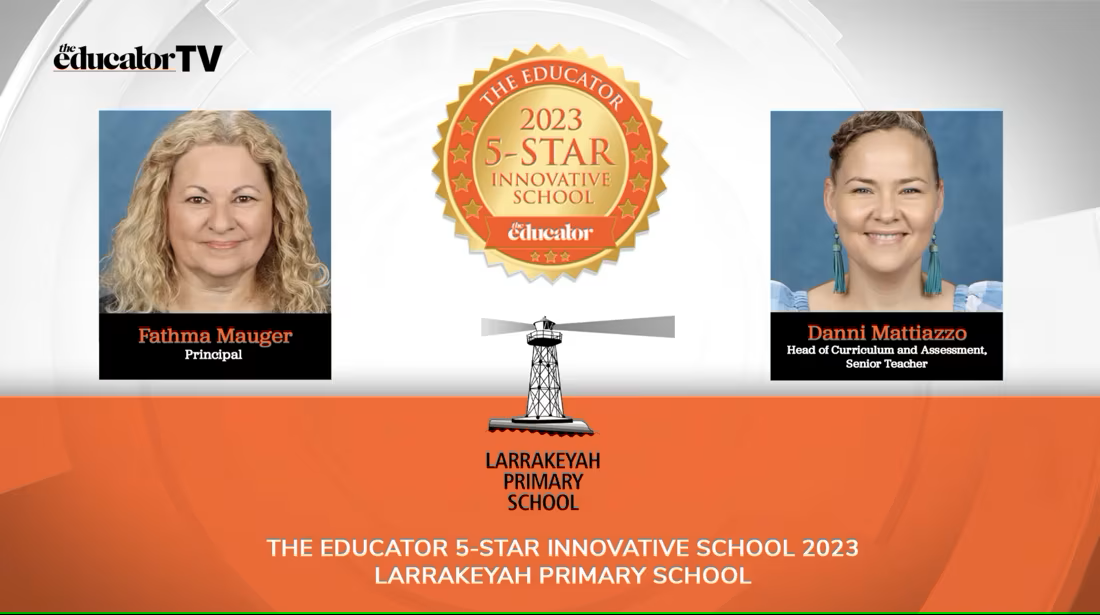Educator Insights: The importance of a complex mindset
In this interview, James Fallon High School principal Jennifer Parret explains her approach to education and how the school’s programs are helping staff and students thrive in an ever-changing world
To view full transcript, please click here
Kylie Speer [00:00:09] Hello and welcome to The Educator TV I'm Kylie Speer. Thank you for joining us for Educator Insights, our inspirational education leadership series. Our guest today is Jennifer Parrett, Principal at James Fallon High School. Under Jennifer's leadership, the school reflects Australia's diverse migration history, comprising a mix of First Nations students from rural Albury and descendants of various waves of migration from Europe, Central southeast and South Asia, as well as new comers from conflict affected regions in Africa and the Middle East, many of whom spent years in refugee camps. Welcome to you, Jennifer. It's so great to have you here.
Jennifer Parrett [00:00:57] Oh, thank you very much, Kylie. I don't know if I call myself inspirational. I'm just somebody who likes to share practice.
Kylie Speer [00:01:05] Well, firstly, Jennifer, in your role and career as principal, what are you most passionate about?
Jennifer Parrett [00:01:13] I think that question is really easy Kylie, and it is about young people. I love the opportunity to come to work every single day to make a difference in the lives of young people. I love that the way that young people work, I love the way that it's an opportunity to watch them grow. So today, we had the graduate class of 2023. And that was fabulous. The opportunity to be with families, young people, watching them grow from 12 years through to adults is just the best fun. And then then the cycle moves on. So I've been involved in education for 33 years. And that is the one that is my why I love a loving part of the journey of young people and seeing them grow and thrive.
Kylie Speer [00:02:00] The education landscape in Australia is transforming rapidly, can you talk us through the changes you're most affected by and how you are approaching their adoption?
Jennifer Parrett [00:02:11] I would say Kylie that education has always changed, for us to think that it hasn't. We touch the future we teach. So we're always in a space where the next generation is going to have something that's different in the space to what they had before. I guess in terms of transformation rapidly, I would be really interested to see, you know how the next steps take us through our education journey. Because we are in a space where some of our some of our systems and our processes are being held to scrutiny. And look that some of the things that I think are really interesting, in terms of the expectation, I think that I think there's a role of education is is something that has morphed and changed as we work through different things. But I also believe that's contextual. So what might work for one school, or what might be the role of one school in one community isn't necessarily the role of another school in another community? I think that's what's brilliant about the human themes that we have. The way I see education is that it's complex, right? So for me, if there is a simple there is there are three types of problems. A very wise coach told me this one. A simple problem is you put muffins in, you know, ingredients in a bowl, and you get a muffin. A complicated problem is where you have a problem with your car you take it to the mechanic, that person knows what to do. And they do that fine tuning thing. Our model is complex, you can influence you can direct you can support, but the decision that you make, or the thing that you do, might not have the impact that you wanted, or the response that you want to because you're talking about the human condition. So I think that that's part of the rapid transformation, we work but it's always been a complex situation, we're always working with people and people are not merge static or stayed or beat in a car. So I think that the thing that I feel passionate about after 33 years of education, is that we need to acknowledge that. That we need to acknowledge that that we have we are in the business of people. And people will respond differently to different things, generationally, technology, you know, demographically, all of those things are around complex systems. And the one thing I would say, approaching that is knowing that right, having a complex mindset, I think is really really important, you know, and trying to find a complicated solution to a complex problem. isn't going to work. So, you know, if you have a problem with attendance, putting a whole, you know, putting stuff on social media will help generate thought around attendance, but it's not always going to fix it. So I think that that's something to bear in mind. So I think I hope I've answered that question. Because I think that the changes are constant evolving. We're in a dynamic profession, a complex profession. And the way I approach the adoption of those things is to adopt a complex mindset, that there's all sorts of synergistic solutions to a problem, or to an issue, or, or to a credit, creative project, and you need to be mindful of those.
Kylie Speer [00:05:42] It sure does. health and well being and diversity and inclusion practices have never been as top of mind and vital as they are right now. How does James Fallon High School approach this area with your students?
Jennifer Parrett [00:05:58] We are a public education, community school. And so obviously, our top of mind is the fact that we are that diversity, we are that space. So James Fallon High School has a school enrollment of approximately 700 students a little bit more a little bit less how it goes from that we have at least one in four of our young people have Aboriginal background, and a lot of those local rotary but others from different mobs and different country, we have probably 9 to 10% of young people who come from refugee and AILD backgrounds. And that's, you know, that's a space that's constantly evolving as well. So we have lots of young people from different backgrounds and different walks of life, we also have a lot of young people with, you know, with learning differences, right. So, and they are, you know, whether they have exceptional physical literacy, or they, you know, they have English as an additional dialect, or they may have a cognitive delay, or they may have a disability and mental health. So, we must be inclusive, because we, we, we can't be anything else, then we must embrace the diversity that is our school, it enriches our community. So we can never say that one child, you know, one size of a child fits all. And I think that that's amazing. It's fabulous. So what we do here at JPL in high school is we create partnerships and opportunities for young people to thrive. We are a school with the big picture design, which is personalized project based learning. And that is a fabulous, innovative piece in the school. And it is based on passion and interest of a student. And exhibition is your assessment. So, we also have an intensive English Center for our young people in that space, we have support classes, we have all sorts of things in our classrooms that go for pockets of success. And also we have some incredible partnerships. For our Aboriginal students, we have caught off Academy in our school. And we also have stars, we are an inaugural school with the stars foundation here in New South Wales. So we are diverse in that school, right? It's something that we embrace, it's something that we love, you must be yourself here, you can't be anything else. So I think that in order to answer that question, but it's not about an approach, it's just who we are. And, and we love that.
Kylie Speer [00:08:37] The issue of AI is an increasingly complex one, what are your thoughts on how to best work with this technology going forward?
Jennifer Parrett [00:08:45] So I am I'm somebody with my training wheels on with AI. And I don't think I know everything in that space. And I don't think I'll pretend to do that. It is a constantly evolving space. One of the things that we have done in our principal networks is to consider artificial intelligence and a whole range of different platforms. It's not just chatbots, but also even just the way we know things. So you know, if we are in a space where we even just look at our social media tools, that the things that we pause on and like and click on the artificial intelligence tells them that they're the things that we want to hear. So in fact, I think the nature of knowledge is really an interesting space in that as well. But I'm, I'm a learner in that one. I really can't tell you what I think that it would be the best way. I think that I think the best way is to keep an open mind. Because everything is you talk about transformational change and how rapid it is. I think that's a space that is so fast.
Kylie Speer [00:09:52] With so much on your plate. How can teachers and principals be best supported by relevant stake holders to ensure you're adequately equipped to do your job?
Jennifer Parrett [00:10:04] With our roles, no two days are ever the same. And the interesting environments, so many different roles, like different tasks are assigned to the principal or school. And I love that. But it's really interesting to try and explain it sometimes to other people in different workspaces in different environments, I think the best way is to ensure that the profession of education is supported by educators, and respected for being one of the most important professions in the world. And for young people. I think that the tools are there, I think that you, as a principal, leave that space. But it is lovely when you have the opportunity for people to support you in that space. As educators, I think the best thing, the most important thing, aspect of our work is the collegiality of principalship. I think there are some amazing supportive opportunities for learning and growth in a collegial sense. So, you know, I know that many of my fiscal colleagues, you know, really respecting, and support our, our employer, and there are great opportunities within that I, you know, I really work really well with my system leaders, and I think I respect them, they're, they're terrific people. But also we have the SPC, the Secondary Principals Council, which is fabulous. You know, it's great to have that shoulder to shoulder support, because they're the people, you can always speak to the people in your context about things. And you certainly don't want to take everything home to your families, but you have the opportunity to talk to your colleagues. And I think that's really important to acknowledge, but I think in terms of support, I'm really, I'm really lucky to have lots and lots of support in a job that I think is really, really important, even if it is at times challenging. I think that with pressure comes diamonds, so I'm okay with that.
Kylie Speer [00:12:15] And finally, what's your number one recommendation or request right now to affect positive change in education?
Jennifer Parrett [00:12:24] To affect positive change in education, I think we need to listen to the educators, I think we need to be in a space where they're in the work, they're doing that work, it is really important to have all manner of stakeholders involved in decision making in education. But I work with educators, they are amazing, clever, articulate human beings who are passionate about their work, it's great to listen to them to affect positive change in education. They're in it. So that would be the number one recommendation or request right now. You know, I'm somebody who believes the best quality for leadership is humility. I don't have all the answers. So that is another thing that I think it's really important to acknowledge that we are always learning seeking, growing, changing in a dynamic context all the time. And, you know, our job is never done, there's never a finish up the to do list, which is okay. It's alright to acknowledge that and keep moving forward. And an education is something that everyone is exposed to in their lives. In Australia, we are super lucky. We have a fabulous education system in Australia. And if we are able to, let's all work together to, you know, to make sure that our system is better and greater. But I do believe that teachers, if they asked will offer the answer, and it's often a really, really good one. Not that they haven't been asked. I'm not saying that. But I think that that's also a really great change or a key to change, positive change in education. Because if you meet a teacher, they usually generally want to be there.
Kylie Speer [00:14:06] Well, thank you so much, once again, for your time today. Jennifer, it was great speaking with you.
Jennifer Parrett [00:14:15] My pleasure. I hope that I hope that I said some things that will be useful and relevant.
Kylie Speer [00:14:21] And thank you, of course to our viewers for watching the latest episode of Educator Insights. We look forward to seeing you again soon.



